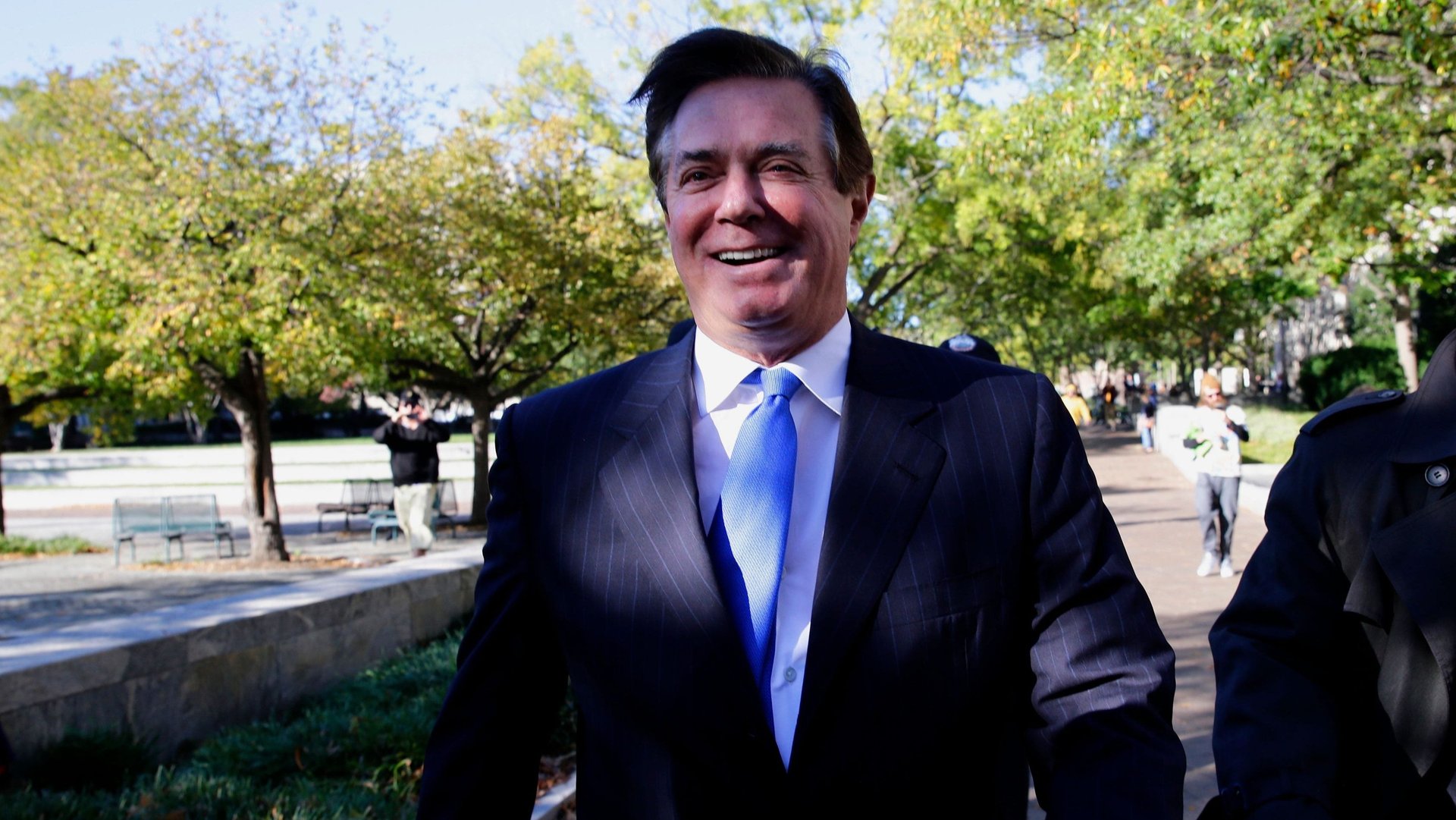Manafort’s light sentence exposes how US courts favor the connected
It’s no secret that US courts regularly dispense one type of justice for the white, wealthy, and well-connected, and another type for everyone else.


It’s no secret that US courts regularly dispense one type of justice for the white, wealthy, and well-connected, and another type for everyone else.
But the 47-month sentence that Donald Trump’s former campaign manager Paul Manafort received after being convicted of eight federal counts of tax and bank fraud involving millions of dollars is a particularly egregious case.
The less than four years Manafort will serve in this case was well below the 19.5-year minimum in prosecutors’ sentencing guidelines, which are crafted using historical precedents. The judge in his case, Thomas Shelby Ellis, is a conservative Ronald Reagan appointee who regularly berated the prosecution during the trial and sought federal protection after receiving threats.
“It’s an extraordinarily lenient sentence in light of the extent and scope of Mr. Manafort’s criminality,” former CIA director John Brennan said. “Paul Manafort has a demonstrated track record of criminal, unethical, unprincipled behavior.” Manafort’s work for a Ukrainian politician is a case study in how western elites help plunder young democracies, as Quartz wrote earlier.
“You ask Ellis for grace, and Manafort did that. His lawyers played that perfectly,” one defense attorney, who has appeared multiple times before the judge, told Quartz, adding, “He is an avowed conservative. He gave the government hell because he thought they would have never gone after Manafort except for the political expediency.”
Manafort will be sentenced next week on two counts related to special counsel Robert Mueller’s investigation into Russian interference in the 2016 election. Each carry a maximum punishment of five years.
Among the American defendants who were recently sentenced in state and local courts to more time than Manafort:
- A black teenager from Brooklyn sentenced to 19 years to life for setting fire to a mattress that resulted in the accidental death of a police officer who came to the scene.
- An Oregon musician sentenced to eight years in Mississippi for possessing medical marijuana he bought legally in Oregon.
- A Hispanic Texas mother of four with a green card sentenced to eight years after voting in several elections, who testified she believed she was eligible to vote.
- A black Texas woman sentenced to five years for voting in the 2016 presidential election, after being released from prison for tax fraud. She testified she believed it was legal for her to vote.
In July, Ellis himself expressed regret when he sentenced a 37-year-old white man to a mandatory minimum of 40 years for dealing methamphetamine, his first serious crime. “I think that’s excessive,” Ellis said, as reported by the Washington Post. “The only thing I can do is express my displeasure. . . . I chafe a bit at that, but I follow the law.”
Research shows disparities in sentencing are ubiquitous. Overall, black male offenders receive “sentences on average 19.1% longer than similarly situated white male offenders,” a 2017 report from the US Sentencing Commission, a bipartisan, independent agency within the federal judicial branch, notes.
Manafort’s sentencing is latest in a series of jarring moments during Trump’s presidency that have shaken some Americans’ confidence in government institutions. The Supreme Court’s decision to overlook Trump’s anti-Muslim tweets as the court backed his ban on immigrants from five Muslim-majority countries last June was among them. The confirmation of Brett Kavanaugh for the top court, despite the temperament he exhibited during Senate hearings on his nomination by Trump stands as another.
Amy Klobuchar, the Minnesota senator who is running for the Democratic nomination for president, said Ellis’ sentence for Manafort is indicative of “two systems of justice.”
Alexandria Ocasio-Cortez, the New York city congresswoman, called it a sign the system is broken.